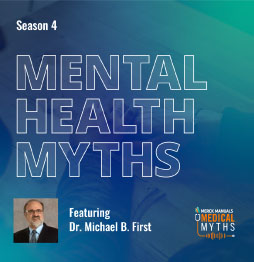Schizophrenia and related psychotic disorders—delusional disorder, brief psychotic disorder, schizophreniform disorder, schizoaffective disorder , and schizotypal personality disorder—are characterized most prominently by psychotic symptoms and often by negative symptoms and cognitive dysfunction.
The word schizophrenia means "split mind," and was created based on the idea that different parts of a patient's personality, such as thought, emotion, and perception, had become fragmented or split. The term psychotic implies some degree of loss of contact with reality.
Schizophrenia is often characterized by certain types of symptoms.
Psychotic symptoms include hallucinations, delusions, disorganized thinking and speech, and disorganized or abnormal motor behavior (including catatonia).
Negative symptoms refer to a marked decrease in or lack of normal thoughts, emotions, and behaviors, such as having a poverty of thought content (reduced spontaneity and productivity of thought), flattened affect, and lack of motivation.
Cognitive dysfunction in these disorders affects attention, executive function, and memory.
Diagnosis is based on symptoms and the course of the illness; biologic markers of the disease have not yet been identified, but they are widely sought.




